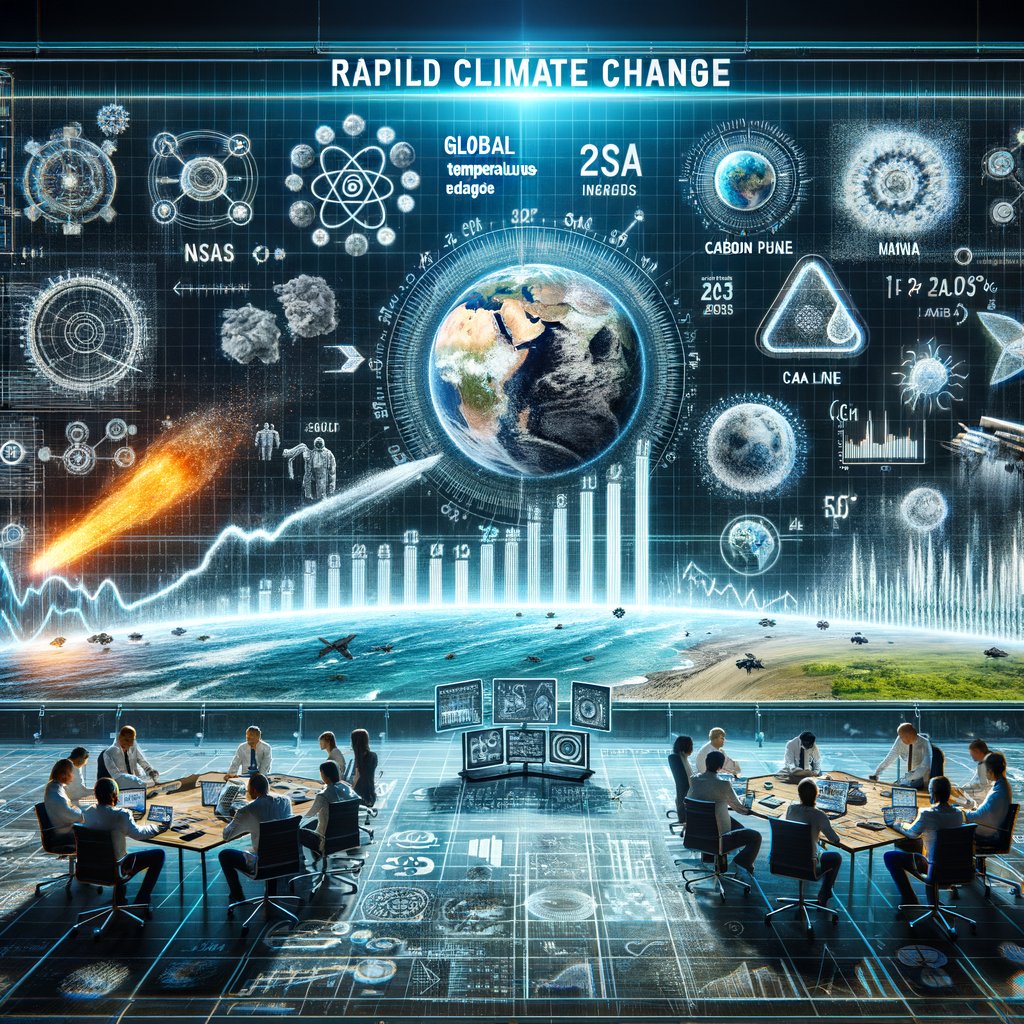Image created by AI
Unprecedented Global Heat Surge Stumps Scientists
In an alarming display of climate change, the past two years have witnessed a remarkable and mysterious rise in global temperatures, baffling scientists and pushing the planet's climate behavior into territories previously unseen and unmodeled. According to top climate experts and recent data from NASA and the World Meteorological Organization (WMO), the years 2023 and 2024 have consecutively set the record as the hottest years in recorded history.
This unprecedented heat surge has thrown a challenge to the scientific community, which has been tracking a steady rise in global temperatures over the decades due to the unabated burning of fossil fuels such as coal, oil, and natural gas. These fuels release greenhouse gases like carbon dioxide, which trap heat in the Earth’s atmosphere, steadily warming the planet. The experts agree unanimously on these contributors to long-term global warming.
However, the recent extreme temperatures have gone beyond what was anticipated by existing climate models. Scientists are exploring a myriad of potential reasons for this sudden spike. Gavin Schmidt, Director of the NASA Goddard Institute for Space Studies, acknowledges the unique severity of the situation, emphasizing that the scientific community is still trying to unravel the complexities of these climate patterns.
One of the primary theories under investigation is linked to natural climate phenomena such as the La Nina and El Nino events. A rare three-year La Nina event, known for its cooling effects, ended just before mid-2023, which then transitioned into an El Nino phase that generally warms the Pacific Ocean and boosts global temperatures. This sequence of events is suspected to have contributed to the sudden rise in 2023.
Adding to the complexity, other factors such as changes in cloud patterns, decreases in airborne pollution due to cleaner shipping fuels adopted globally in 2020, and alterations in Earth’s carbon storage capability are being scrutinized. Notably, a decrease in sulfur emissions, which aid in reflecting sunlight away from Earth, could have reduced the planet’s ability to shield itself against the sun’s heat.
Moreover, revelations about the Earth's carbon sinks, like forests and oceans, facing "unprecedented weakening" in their capacity to absorb carbon dioxide, pose another troubling aspect to this puzzle. Johan Rockstrom from the Potsdam Institute for Climate Impact Research also highlighted the unusually high rates at which oceans, the massive carbon sinks of the planet, are warming – rates that are currently inexplicable.
In the wake of these findings and ongoing research, the scientific community remains on high alert, continuing to monitor and investigate the multiple interacting factors contributing to this sudden and extreme heat surge. The fear is that without understanding and addressing these changes, the world may be entering a phase of irreversible and more aggressive climate change, signaling a possible shift in Earth’s climate resilience.










